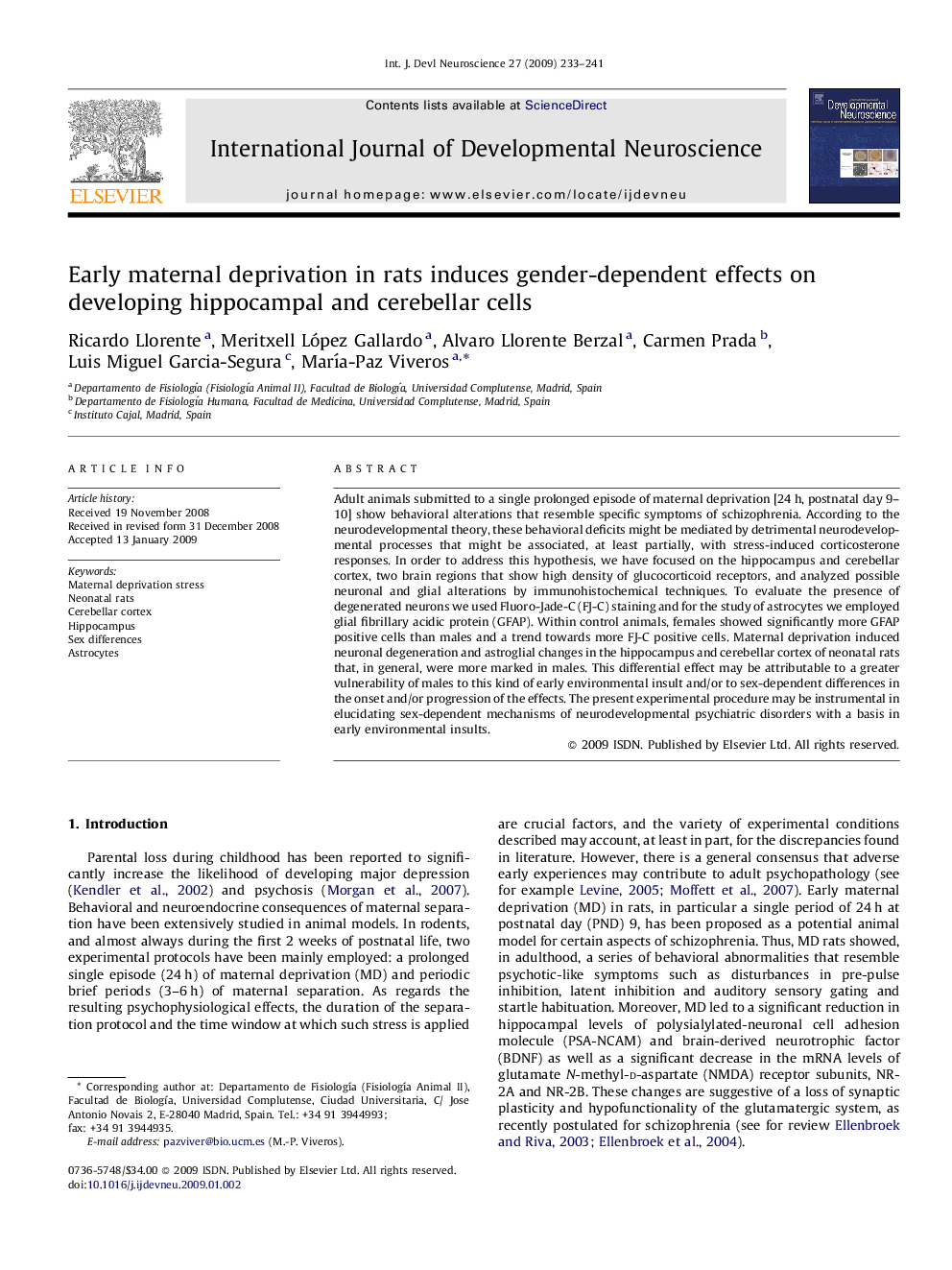| Article ID | Journal | Published Year | Pages | File Type |
|---|---|---|---|---|
| 2787026 | International Journal of Developmental Neuroscience | 2009 | 9 Pages |
Adult animals submitted to a single prolonged episode of maternal deprivation [24 h, postnatal day 9–10] show behavioral alterations that resemble specific symptoms of schizophrenia. According to the neurodevelopmental theory, these behavioral deficits might be mediated by detrimental neurodevelopmental processes that might be associated, at least partially, with stress-induced corticosterone responses. In order to address this hypothesis, we have focused on the hippocampus and cerebellar cortex, two brain regions that show high density of glucocorticoid receptors, and analyzed possible neuronal and glial alterations by immunohistochemical techniques. To evaluate the presence of degenerated neurons we used Fluoro-Jade-C (FJ-C) staining and for the study of astrocytes we employed glial fibrillary acidic protein (GFAP). Within control animals, females showed significantly more GFAP positive cells than males and a trend towards more FJ-C positive cells. Maternal deprivation induced neuronal degeneration and astroglial changes in the hippocampus and cerebellar cortex of neonatal rats that, in general, were more marked in males. This differential effect may be attributable to a greater vulnerability of males to this kind of early environmental insult and/or to sex-dependent differences in the onset and/or progression of the effects. The present experimental procedure may be instrumental in elucidating sex-dependent mechanisms of neurodevelopmental psychiatric disorders with a basis in early environmental insults.
